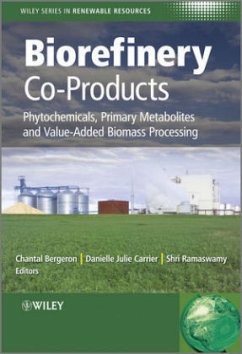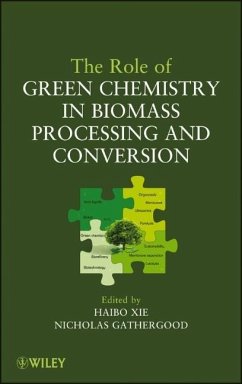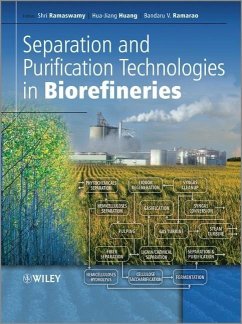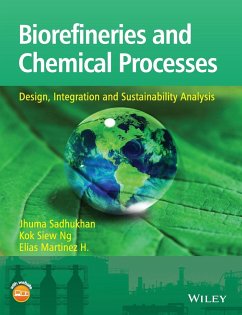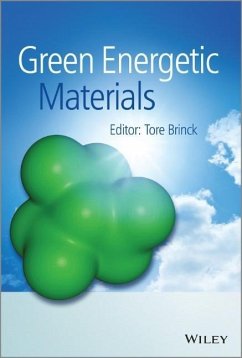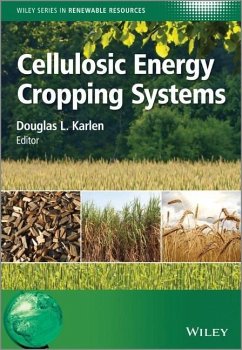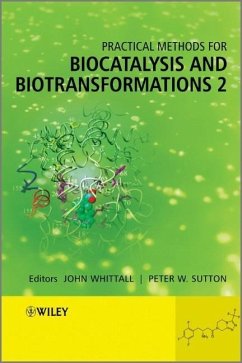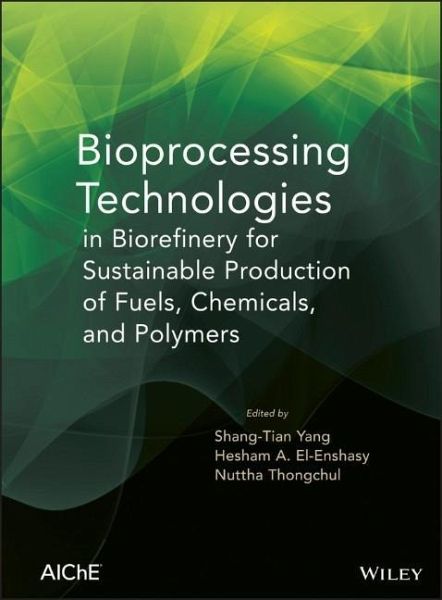
Bioprocessing Technologies in Biorefinery for Sustainable Production of Fuels, Chemicals, and Polymers
Versandkostenfrei!
Versandfertig in über 4 Wochen
158,99 €
inkl. MwSt.
Weitere Ausgaben:

PAYBACK Punkte
79 °P sammeln!
For researchers already familiar with biomass conversion technologies and for professionals in other fields, such as agriculture, food, and chemical industries, here is a comprehensive review of the emerging biorefinery industry. The book's content has been conveniently organized according to technologies (biomass feedstock and pretreatment, hydrolytic enzymes in biorefinery, and biofuels), with each chapter highlighting an important biobased industrial product. For undergraduate and graduate students, the book is a thorough introduction to biorefinery technologies.
Sets the stage for large-scale production of biofuels and bio-based chemicals
In response to diminishing supplies as well as the environmental hazards posed by fossil fuels and petrochemicals, interest and demand for green, sustainable biofuels and bio-based chemicals are soaring. Biomass may be the solution. It is an abundant carbon-neutral renewable feedstock that can be used for the production of fuels and chemicals. Currently, biorefineries use corn, soybeans, and sugarcane for bioethanol and biodiesel production; however, there are many challenges facing biorefineries, preventing biomass from reaching its full potential.
This book provides a comprehensive review of bioprocessing technologies that use lignocellulosic biomass for the production of biofuels, biochemicals, and biopolymers. It begins with an overview of integrated biorefineries. Next, it covers:
Biomass feedstocks, including sugar, starch, oil, and energy crops as well as microalgae
Pretreatment technologies for lignocellulosic biomass
Hydrolytic enzymes used in biorefineries for the hydrolysis of starch and lignocelluloses Bioconversion technologies for current and future biofuels such as ethanol, biodiesel, butanol, hydrogen, and biogas
Specialty chemicals, building block chemicals, and biopolymers produced via fermentation
Phytochemicals and functional food ingredients extracted from plant materials
All the chapters have been written and edited by leading experts in bioprocessing and biorefining technologies. Contributions are based on a thorough review of the literature as well as the authors' firsthand experience developing and working with bioprocessing technologies.
By setting forth the current state of the technology and pointing to promising new directions in research, Bioprocessing Technologies in Biorefinery for Sustainable Production of Fuels, Chemicals, and Polymers will enable readers to move towards large-scale, sustainable, and economical production of biofuels and bio-based chemicals.
In response to diminishing supplies as well as the environmental hazards posed by fossil fuels and petrochemicals, interest and demand for green, sustainable biofuels and bio-based chemicals are soaring. Biomass may be the solution. It is an abundant carbon-neutral renewable feedstock that can be used for the production of fuels and chemicals. Currently, biorefineries use corn, soybeans, and sugarcane for bioethanol and biodiesel production; however, there are many challenges facing biorefineries, preventing biomass from reaching its full potential.
This book provides a comprehensive review of bioprocessing technologies that use lignocellulosic biomass for the production of biofuels, biochemicals, and biopolymers. It begins with an overview of integrated biorefineries. Next, it covers:
Biomass feedstocks, including sugar, starch, oil, and energy crops as well as microalgae
Pretreatment technologies for lignocellulosic biomass
Hydrolytic enzymes used in biorefineries for the hydrolysis of starch and lignocelluloses Bioconversion technologies for current and future biofuels such as ethanol, biodiesel, butanol, hydrogen, and biogas
Specialty chemicals, building block chemicals, and biopolymers produced via fermentation
Phytochemicals and functional food ingredients extracted from plant materials
All the chapters have been written and edited by leading experts in bioprocessing and biorefining technologies. Contributions are based on a thorough review of the literature as well as the authors' firsthand experience developing and working with bioprocessing technologies.
By setting forth the current state of the technology and pointing to promising new directions in research, Bioprocessing Technologies in Biorefinery for Sustainable Production of Fuels, Chemicals, and Polymers will enable readers to move towards large-scale, sustainable, and economical production of biofuels and bio-based chemicals.




